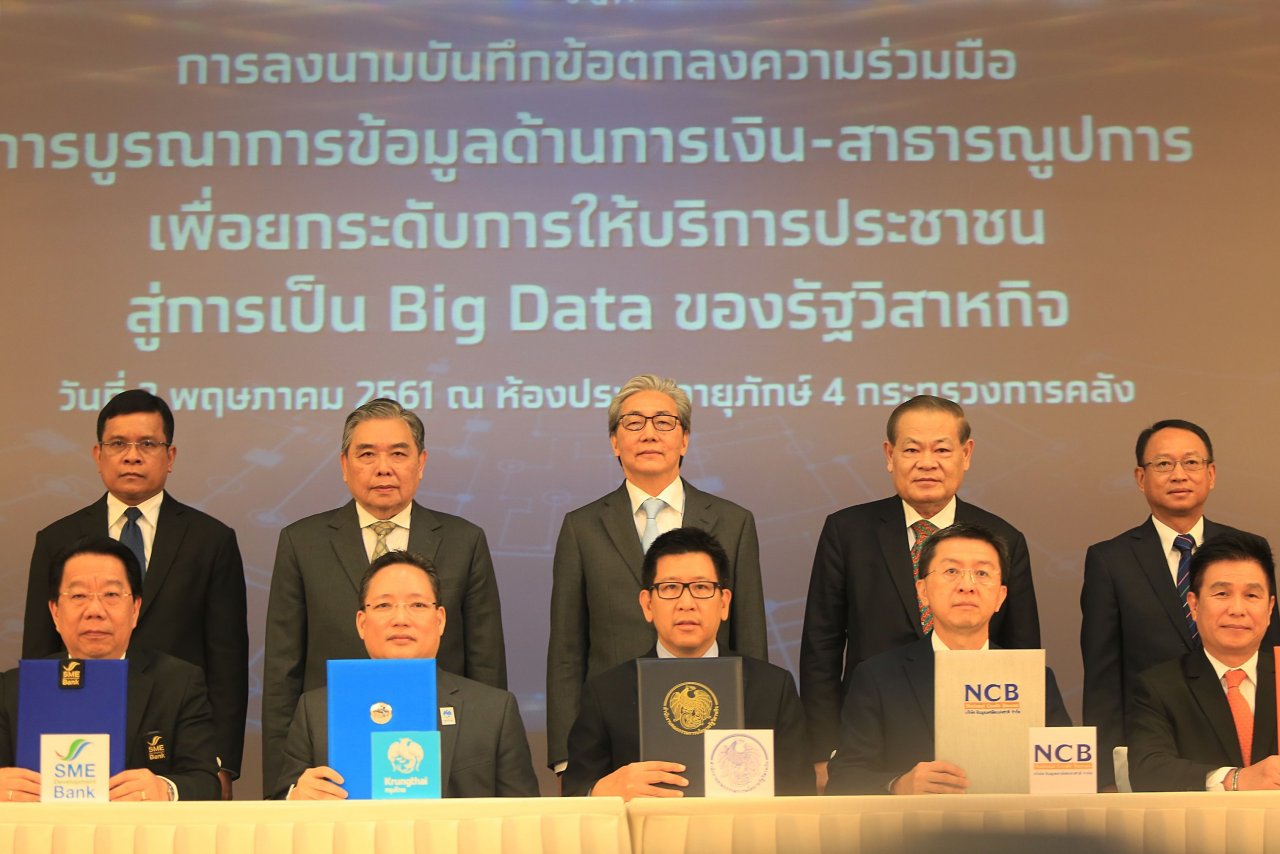Thailand: Big Data mined to boost services
BIG DATA gathered from customers’ accounts with public utilities and state-owned banks will be crunched under a pilot project destined for expansion across all government departments in an effort to make public services more efficient.
Deputy Prime Minister Somkid Jatusripitak, yesterday presided over a signing agreement between the State Enterprise Policy Office, the National Credit Bureau Co (NCB), four state-owned enterprises and nine specialised financial institution on the data-sharing initiative. The initial scope will cover electricity and tap-water services as well as the financial services of state-owned lenders.
The government aims to provide better services for the people and use Big Data to formulate more effective government policies, said Somkid. Useful information would be shared and the public also should be able to access such data, he said.
Currently, most of the information retained by the government departments is treated as classified information, resulting in the data not being shared among the departments.
Somkid assigned the National Economic and Social Development Board (NESDB), a state think-tank, and the Finance Ministry to act as twin centres for aggregating the government data from these customer accounts.
Somkid said that many government departments lack sufficient data to support policy development, hindering the economic management of the country as a whole.
“With more available data, the government will be able to implement a tailor-made programme to address the needs of specific groups of people, while data privacy considerations would apply in some cases,” Somkid said.
Finance Minister Apisak Tantivorawong, said that state enterprises would join together to set up a data company and the NCB would be the largest shareholder of this entity.
xxxxxxxxxxxx
The NCB provides credit information for financial institutions and for people who want to take out mortgages or other types of loans from banks.
Apisak said that it would take about six months to set up the company and begin aggregating sufficient data from the relevant agencies.
The Finance Ministry is also working on information-sharing plans between the tax collection agencies: the Revenue Department, the Excise Department and the Customs Department, he said.
Apisak believes that the Big Data initiative would help small and medium-sized enterprises to more easily obtain loans from banks.
He also said that a more comprehensive data set would help the government to better lay out economic policies, especially on the fiscal front to support low-income groups. Ultimately, the enhanced information gathering could benefit the 11.4 million people registered under the welfare card programme and who receive cash handouts of Bt300-Bt500 a month, the finance minister said.
Asked about progress on the welfare programme, Apisak conceded that some 1.5 million poor people had not yet joined a career training programme offered under the scheme. Most of them are senior citizens, are sick or have disabilities. “Many of those who do not wish to join the training programme are satisfied with the current monthly cash handouts, so we will not force them to participate,” he said.
Ekniti Nitithanprapas, director general of the State Enterprise Policy Office, said that that under the pilot project, the Metropolitan Electricity Authority, the Provincial Electricity Authority, the Metropolitan Waterworks Authority and the Provincial Waterworks Authority would share their information with the state-owned banks. Information from the NCB would also be used as a tool for making policies to promote SMEs.
The next phase of the project may include Thailand Post, Ekniti said.
With the latest initiative, there are now two approaches being implemented to harness the potential of Big Data for the country.
The Big Data scheme of the state enterprises is a bottom-up approach, while a top-down approach on data analytics is being implemented by the Electronic Government Agency (EGA), a public organisation.
The top-down approach, which aims to aggregate all the information of government, has progressed slowly, according to government officials.
Source: http://www.nationmultimedia.com/detail/Economy/30344468


 Thailand
Thailand




